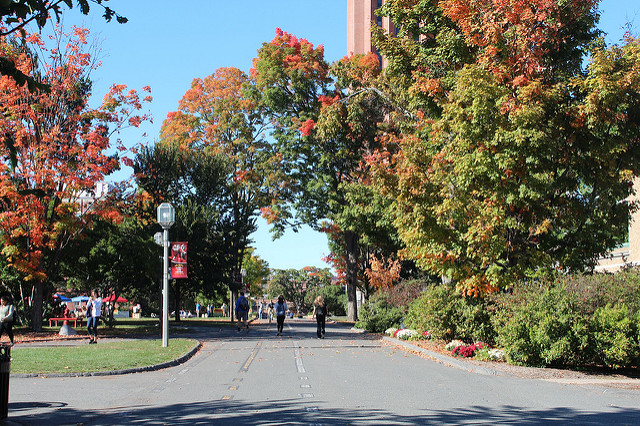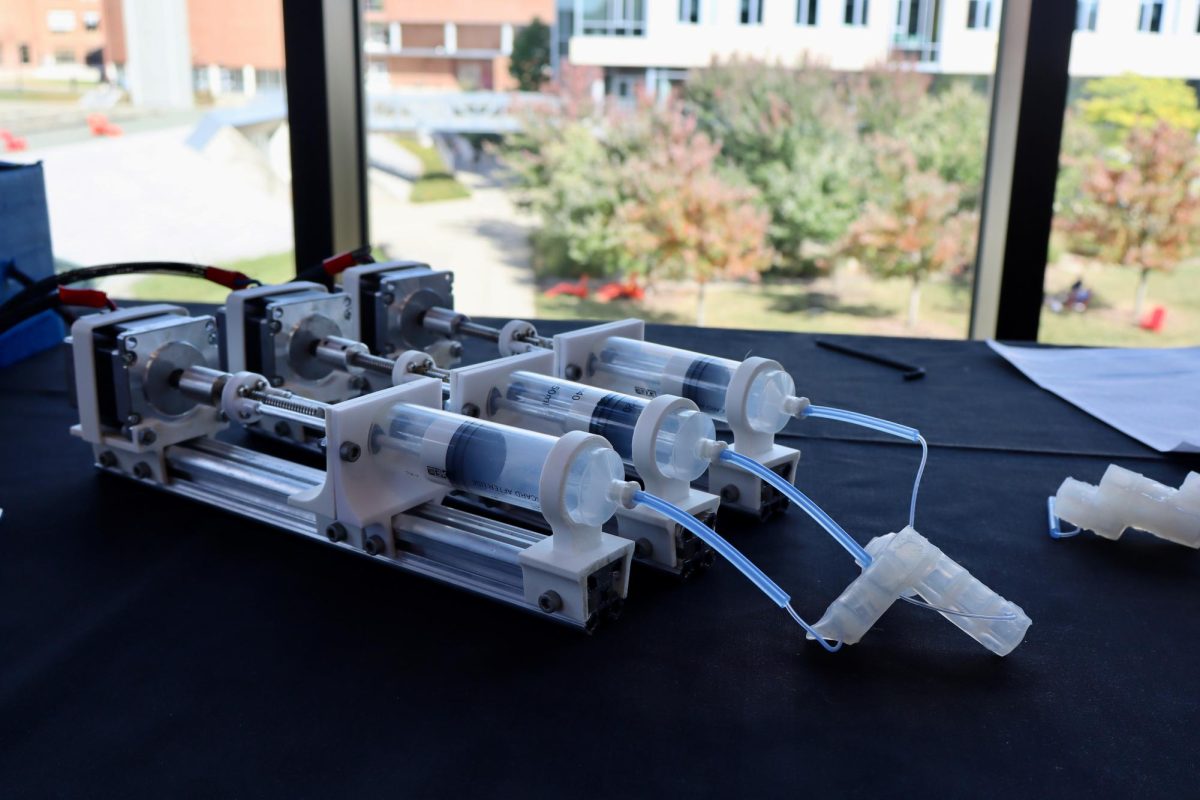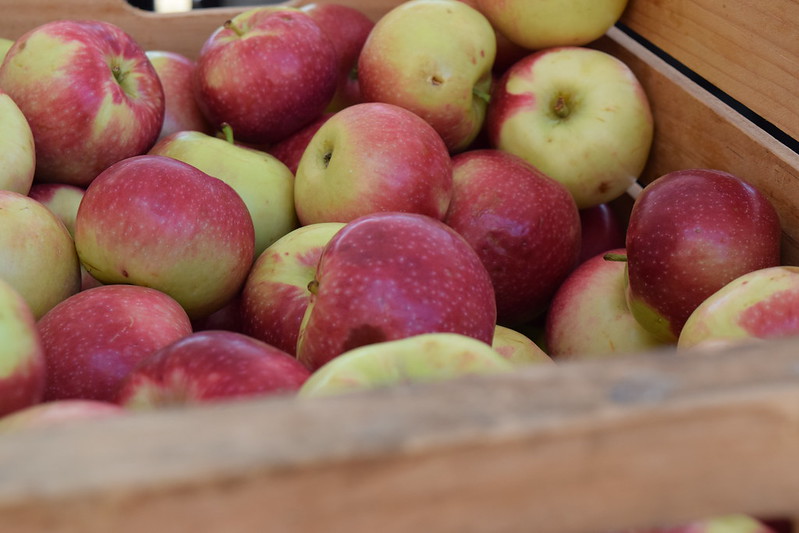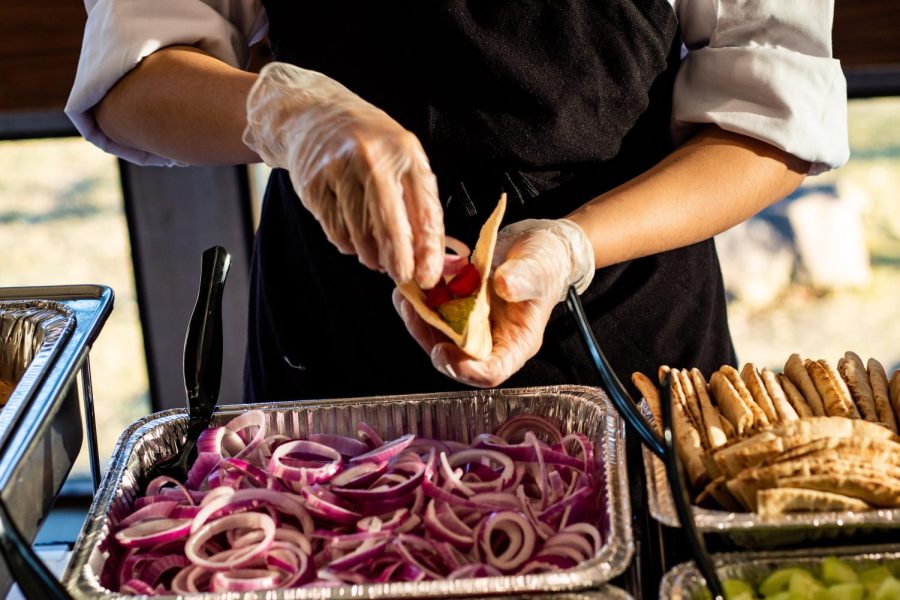On April 27, students, staff and the local community celebrated the annual Arbor Day festivities at the University of Massachusetts.
The holiday meant to highlight the importance of trees was founded in 1872 in the state of Nebraska by J. Sterling Morton and has since spread around the country and even the world, according to Time.
Among the festivities was a campus tree walk led by Todd Cournoyer, the head of grounds services, who has worked with the University for over two decades, beginning when he was a student in the Stockbridge School of Agriculture.
The walk began in front of South College’s Japanese elm, which is over a century old. Cournoyer said it is a “national champion” tree, clarifying that “We have several state champion trees…those are the largest trees of their species in the state and we have at least two national champion trees in our arboretum; those are trees that are the biggest of their species in the country.”
The walk additionally showcased a wide variety of trees on campus ranging in geographic origins from the weeping Alaskan cedars in front of Skinner Hall to the Bosnian mint truffle pines outside of Memorial Hall.
Cournoyer said, “We have collections of trees and plants from all around the world. The University of Massachusetts was originally an agricultural college and its history and its heritage was one of trading plant material with other universities, other countries and collecting, planting, identifying and exhibiting unique species of wooden plants from all around the world.”
As the walk progressed it featured tree species once thought to have gone extinct, such as the ginkgo tree, which has once again flourished, to trees which were once abundant, such as the white ash, but have fallen victim to destruction by insects and disease.
Cournoyer explained, “Ash trees are a native tree to this part of the world and right now there’s an insect called the emerald ash borer that is threatening to wipe out the entire population of ash in all of New England, maybe even the whole country, so it’s sad.”
He detailed other threats, past and present, to trees, saying, “We’ve seen the same thing happen before with the American chestnut, which was the predominant tree in the woodland forests around this area. A disease wiped them out. We saw the same thing with Dutch elm disease. Elm trees were another very predominant tree, a hugely important landscape tree, the American elm, was completely wiped out by Dutch elm disease.”
Cournoyer added, “We intend to treat some ash trees on campus so that the emerald ash borer won’t be able to kill them. That’s because the Waugh Arboretum, this arboretum, is a teaching arboretum and this is a teaching landscape.”
He explained that UMass is home to the Frank A. Waugh Arboretum, which works to “not just create a beautiful place for students to learn, that’s certainly very important to us, but it’s also meant to be a learning environment where people can learn about plants from all over the world.”
He added that UMass is an accredited member of Tree Campus USA, which is “an accreditation through the Arbor Day Foundation and in order for colleges, universities and municipalities to qualify for that accreditation we have to meet certain criteria.”
“So we have to spend so many dollars a year maintaining trees, we have to have a full-time tree crew. We have an Arbor Day celebration as one of those requirements, we do outreach to other organizations, there’s a whole list of criteria,” Cournoyer said.
He also spoke about issues facing trees. Cournoyer said, “A lot of problems that we hear about every day with the environment have to do with dwindling tree canopy. I think it’s a pretty well-known fact by now that millions of acres of forest are lost every year in South America,” adding, “Trees sequester a lot of carbon and we as a race produce a lot of it,” citing the value of trees in our era of carbon emissions and climate change.
Among the festivities working to ameliorate this issue was an information stand located outside of Bartlett hall, also the site of the new class of 2018 shingle oak. Among those working at the stand was senior plant and soil sciences major Sydney Mark, who was distributing saplings and T-shirts.
Mark stated, “I’m always excited to do things were I get to be talking to people, I like sharing my knowledge and my love for plants.”
“Obviously it’s just good to be planting more trees whenever people can and it’s good to have people thinking about that, especially with the climate kind of being under the stress that it is right now, having more trees being planted is always a helpful contribution,” Mark further added.
Mark explained the joy in planting a tree and watching it grow, saying, “Planting a tree I think just also makes you feel good,” and “it’s something that you’re leaving behind and something that will grow with you and I think it’s good to get people excited about that.”
Her comments echo those of arbor day founder J. Sterling Morton who once said, “Arbor Day…is not like other holidays. Each of those reposes on the past, while Arbor Day proposes for the future.”
Chris McLaughlin can be reached at [email protected] and followed on Twitter @ChrisMcLJournal.




















